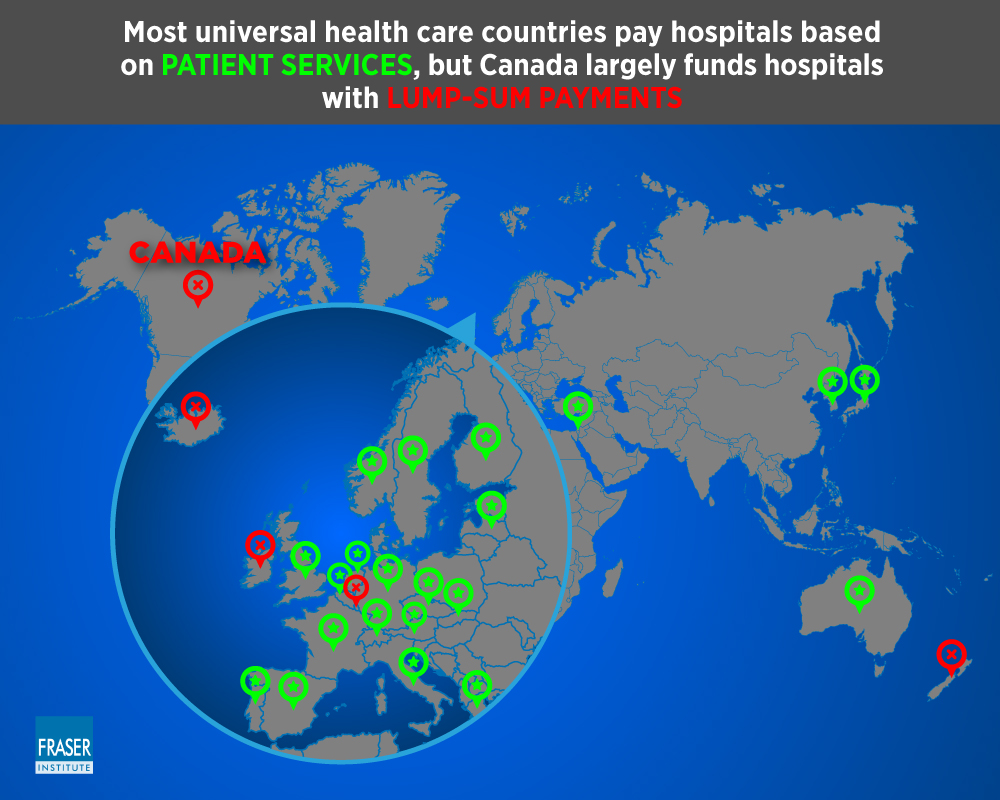Study
| EST. READ TIME 1 MIN.Canada one of only 5 universal healthcare countries that fails to pay hospitals based on actual patient services
Money Following Patients: A Better Way to Pay for Universally Accessible Hospital Care
Main Conclusions
- Over the last 30 years, nearly all of the world’s developed nations with universally accessible health-care systems have moved to at least partially having money follow patients for hospital care, and away from the global-budget approach that dominates hospital funding in Canada.
- While simpler to administer, global budgets disconnect funding from the volume and quality of services delivered to patients, leading to lower levels of activity and providing no financial incentives for improved access to care or superior quality services.
- Money following patients turns this system on its head, shifting patients from cost centres and a drain on the budget to a source of additional financial resources for the hospital, and creating powerful incentives for providers to increase throughput, improve efficiency, and improve the patient-centeredness of the services provided.
- Incentives to improve quality of care, both from a cost perspective and to attract additional patients, are also created by activity-based funding and can be strengthened by funding approaches that restrict payment for complications and poor quality or that reward higher quality.

Share
Related Topics
Related Articles
Philpott should act on instincts and promote Dutch-style health-care reform in Ontario
By: Bacchus Barua and Mackenzie Moir
Canadians want major health-care reform now
By: Mackenzie Moir
Other countries with universal health care don’t have Canada’s long wait times
By: Mackenzie Moir and Bacchus Barua
Alberta government should reform hospital funding to help shorten wait times
By: Mackenzie Moir and Alicia Kardos
